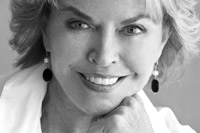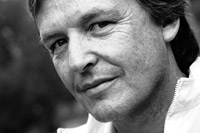Program Hosts
Onstage, TEDWomen 2010 will be hosted by Pat Mitchell, President and CEO of The Paley Center, along with members of the TED team, led by June Cohen, TED's Executive Producer of Media.

Pat Mitchell, President and CEO, The Paley Center for Media
Pat Mitchell began her media career in print (at LOOK) and transitioned to television, as opportunities opened up for women in the early 1970s. She was among the first women to anchor the news (WBZ-TV Boston), host a morning talk show (Woman 74), and report from the White House. She was also the first woman to host a talk show, the Emmy-winning Woman to Woman. As a producer (her documentaries include Women and War, Century of Women, Cold War), Mitchell's work has garnered 37 Emmy Awards, five Peabodys, and two Academy Award nominations. In 2000, she became the first woman President and CEO of PBS. Mitchell also serves on a number of boards, including the corporate board of AOL and nonprofit boards of the Sundance Institute, the Mayo Clinic, and VDAY.

June Cohen, Executive Producer, TED Media
As Executive Producer of TED Media, June Cohen has been responsible for bringing the TED Conference online and helping to grow its audience to more than 150 million viewers worldwide. In 2006, she launched TEDTalks, the online video series of TED Conference talks, followed by TED.com, the TED Open Translation Project and the TED Open TV Project. Cohen also co-produces and co-hosts the TED Conference in California. A journalist by training, she was previously VP of Content at HotWired.com, the pioneering website from Wired magazine. In 1991, she launched the world's first networked multimedia magazine, at Stanford University

Chris Anderson, Curator, TED Curator
Chris Anderson is the curator of the TED Conference. His first publishing company, Future Publishing, grew rapidly under the motto "media with passion." Expanding to the United States, he built Imagine Media, publisher of Business 2.0 magazine, and creator of the games website IGN. Thanks to this success, Anderson created the Sapling Foundation, which hoped to find new ways of tackling global issues by leveraging media, technology, entrepreneurship, and ideas. Sapling acquired the TED Conference in 2001, and Anderson left his businesses to focus on TED, developed it as a platform for identifying and disseminating ideas worth spreading.
